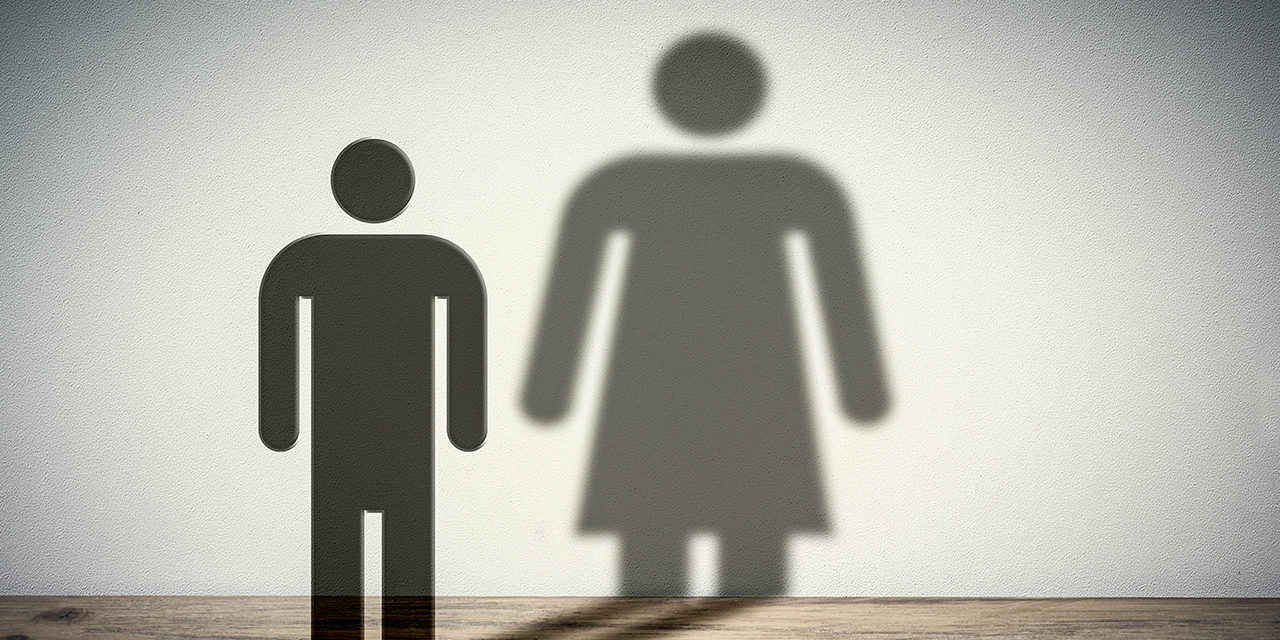Note: This article deals with sensitive and difficult issues and contains content for mature readers.
From Order to Chaos
God divinely ordered human creation to have two sexes — male and female, and He planned for sexual expression to take place within marriage between a husband and wife. In contrast, today we in the West are confronted by a spirit of “transgender” activism — flowing out of the gay rights movement — that says gender no longer matters, the distinctives of male and female are merely social constructs, the sexes are interchangeable, there are an infinite variety of genders, and gender is changeable. For transgender activists and their allies, what matters more than being male or female is a person’s “gender identity” — how people believe or think about themselves — and “gender expression” — how people express their gender identity through clothes, hairstyle, makeup, mannerisms or even surgery.
Ironically, while these activists argue that a homosexual orientation is fixed and immutable, they incoherently claim that gender is fluid and changeable. Caitlin Ryan, a gay activist, clinical social worker and researcher at San Francisco State University spoke of this shift in our cultural mindset:
“I think the fluidity of gender is the next big wave in terms of adolescent development… Gender has become part of the defining way that youth organize themselves and rebel against adults.”1
In short, a profound deconstruction of gender is taking place within every arena of society that undermines the fundamental order established by God Himself — reflecting the very essence of who He is and who we were created to be. And when God’s order is deconstructed and redefined, the consequences for gender, sexuality, individuals, marriage, family, and society are profound and far-reaching.
Adding the “T” to LGB
For decades, lesbian, gay and bisexual activist (LGB) leaders worked hard to keep those who called themselves “transgender” or “transsexual” as far out of the public eye as possible. By their own admission, the last thing they wanted was a bunch of “drag queens” and cross-dressers to scare away potential allies and ruin any hope for their community to achieve its political goals. So the activists only portrayed homosexuals in favorable and non-threatening ways.
But recent years have seen a sea-change in attitudes about cultural acceptance of homosexuality. And LGB activists believe that sufficient political gains have been won at the local, state and federal levels that they can now turn their attention to adding the “T” — for transgender — to the LGB acronym that represents their community.
So today, at every level of government, we are seeing the LGBT-identified community press hard to add the “transgender” category to existing laws. While the initial goal of gay activists was to add “sexual orientation” to laws and to normalize homosexuality and bisexuality across every arena of society, the goal now is to add “gender identity or expression” to laws and to normalize “transgenderism.” Presently this is happening with the various forms of hate crimes laws and with public accommodation, education, housing and employment nondiscrimination laws at local, state and federal levels. These laws create new rights based on sexual behavior and identity, placing those rights at the same level as other freedoms, such as speech, religion and association.
Of particular concern when it comes to the creation of protected class status for “sexual minorities” through hate crimes and nondiscrimination laws is the sobering reality that when “LGBT rights” collide with religious liberties, religious freedom nearly always loses. Recent events in not only the United States, but in Canada, the United Kingdom, and Sweden clearly demonstrate that the cultural battles over the normalization of homosexuality and transgenderism are a zero-sum game — gains afforded to one group will necessarily come at the expense of another. Specifically, those who hold to a biblically orthodox view on homosexuality or transgenderism will increasingly find their voices marginalized and then eventually banned from the public arena.2
The Growing Transgender Movement
Almost every day now, we read stories of new laws being enacted that include “gender identity and expression” or of the growing impact of the transgender movement. From education to entertainment and from the media to the marketplace, transgenderism is applauded and approved. Here are some examples from the past few years:
- The Department of Education announced that Title IX, part of a 1972 education legislation that bars sex-based discrimination in schools that receive federal funds, also applies to transgender students.3
- A 12-year-old boy in Germany began opposite-sex hormone treatments, making him the youngest sex-change patient in the world.4
- In 2011, the Internal Revenue Service announced that surgery and hormones for people with gender identity disorders now qualified for itemized medical deductions.5
- In the United Kingdom, new school guidelines warn teachers that telling boys to act like men leads to “bullying of those who do not conform to fixed ideas about gender.”6
- A New York principal was allowed to return to his job after undergoing sex reassignment surgery.7
- At Children’s Hospital in Boston, parents of children who struggle with gender confusion are being encouraged to raise their children according to the gender they want to be. Some of these children are given puberty-delaying drugs in anticipation of surgery and a lifetime of taking opposite sex hormones.8
- Nationally, cities, schools and organizations are adopting gender neutral restrooms because ‘women’s’ and ‘men’s’ restrooms only acknowledge a two-gender system.9
- The new model for the haircare brand Redken is Lea T, touted as “the first transgender model to become the face of a global cosmetics brand.”10
- A bearded man – dressed and made up to look like a woman – won the Eurovision Song Contest, an international competition, in 2014.11
- In California, SB 777, a bill signed into law in 2007 by Gov. Arnold Schwarzenegger prohibits teaching or activity that “reflects adversely upon” or “promotes a discriminatory bias” because of sexual orientation or gender identity.12






